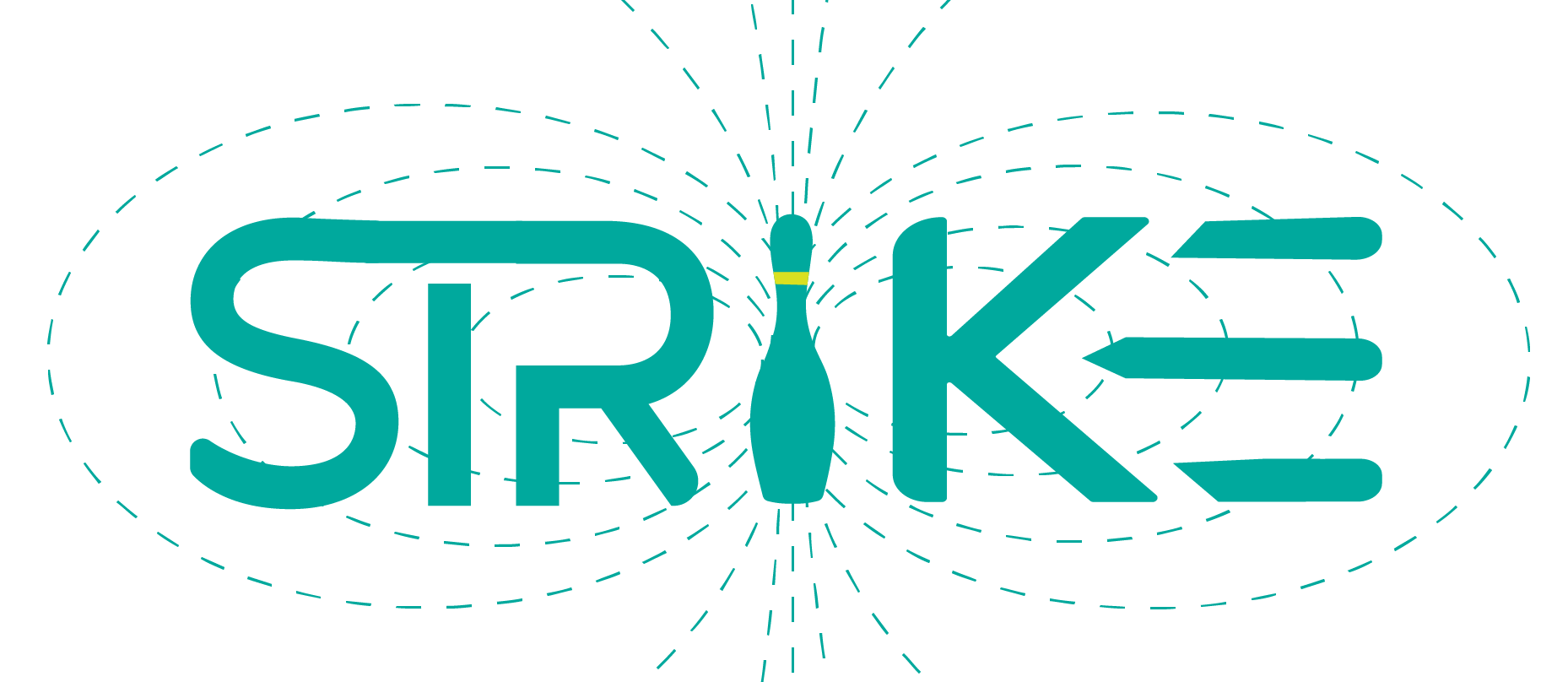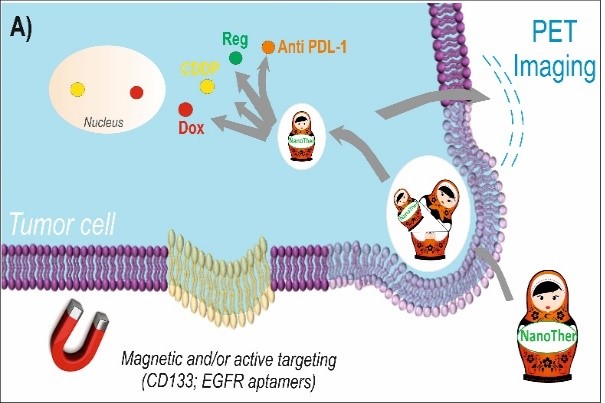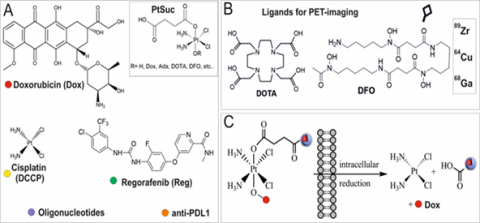Design, synthesis, characterisation and interaction with magnetic nanoplatforms of Pt(IV) pro-drugs selective for osteosarcoma cancer
The candidate should have a M.Sc. or 4 years BC in Chemistry or related topics
Tumors localized in bone still remain incurable fatal diseases due to either the fast clearance or non-specific binding profile of the therapeutic agents. In addition, the solid composition, and the large surface area of bones, prevent the therapeutics to reach the desired site and represent the major drawback in the treatment of bone malignancy. Therefore, the treatment of bone tumors, such as osteosarcoma (OS) remains highly challenging, and no significant progress was achieved in any scientific areas including nanomedicine. Currently, treatment options incorporate surgery and combination chemotherapy which cures 70% of patients. However, for patients with metastatic or relapsed OS, the modes of treatment have remained unchanged for over 30 years and results in a significantly lower survival rate among patients. This reduction in survivability is partially because cisplatin is a standard drug in the treatment of OS and has limited effectiveness stemming from chemoresistance and a lack of drug selectivity. This lack of selectivity and a need to overcome cisplatin resistance has led many to develop novel compounds to target specific molecular alterations in tumours, with the objective of restoring chemosensitivity. STRIKE is an innovative MSCA training network with a long-term vision for the development of breakthrough technologies for cancer treatment: i) magnetic-responsive nano-hybrid materials for diagnosis and therapy, ii) targeted OS therapy and diagnosis iii) liquid biopsy for an innovative early diagnosis.
Project 3 will be focused on the planning and the synthesis of platinum based anticancer drugs selective for OS treatment with appropriate ligands for imaging. Pt(IV) will be functionalised with Doxorubicin and/or appropriate ligands (i.e. DOTA, DFO) for radiolabelling with nuclides (68Ga, 89Zr, 64Cu). During the mobility periods, ESR3 will learn the possible ways of interaction Pt-based drugs-MagU and will be trained in the functionalization of the Pt(IV) with different radio nuclei for imaging purpose. ESR3 will attend different taught modules regarding core skills and research techniques in chemistry and aspects of technology commercialization with all the other ESRs.
The project will be mainly carried out at National University of Ireland Maynooth (NUIM), under the supervision of Dr Diego Montagner. The PhD degree in MHE02 PhD programme (4 years) at
NUIM under the supervision of Dr. Montagner (https://www.maynoothuniversity.ie/faculty-science-engineering/our-people/diego-montagner).

The Department of Chemistry at NUIM is a research-led and student focussed department, with research and teaching expertise in Organic, Inorganic, Physical, Analytical and Computational Chemistry. Our researchers are addressing important and complex problems at the interface of chemistry with biology, material science, biotechnology and nanoscience. The department has a welcoming and collaborative atmosphere where students can study for B.Sc. degrees in either Chemistry or Pharmaceutical and Biomedical Chemistry in addition to postgraduate research degrees at M.Sc and Ph.D. level.
- Vision: “Research led education for the next generation of chemical scientists”
- Mission Statement: “Our mission is to train excellent undergraduates and postgraduates and conduct state-of-the-art research in the chemical sciences.”
- Distilled Key Values: integrity, curiosity, ambition and hard work
Planned secondments:
❖ STEM Innovation (Italy), 1 week: Complementary training meeting on IPR management and soft skill.
❖ Univerzita Palackeho V Olomouci, UP, (Czech Republic) 1 month: To be trained on development, synthesis and characterisation of MagU.
❖ CNR (Faenza, Italy) 1 month: to learn how to manipulate cell cultures for the study of the multi action Pt(IV) drugs.
❖ Medizinische Universitaet Wien, MUV, 2 months: to learn the radio labelling strategies.
❖ WILEY-VCH, (Germany) 2 months: to learn on the dissemination/communication procedures in scientific publishing company.
❖ University of Messina (UNIME), 1 month: To learn the entrapment of drugs into NP by host/guest interactions.
For more information concerning the research project please contact:
Applications for project 3 will be sent to Maynooth University via the HR portal at the following link:
www.maynoothuniversity.ie/human-resources/vacancies with Vacancy ID number 021101
and in cc to strike@unime.it


